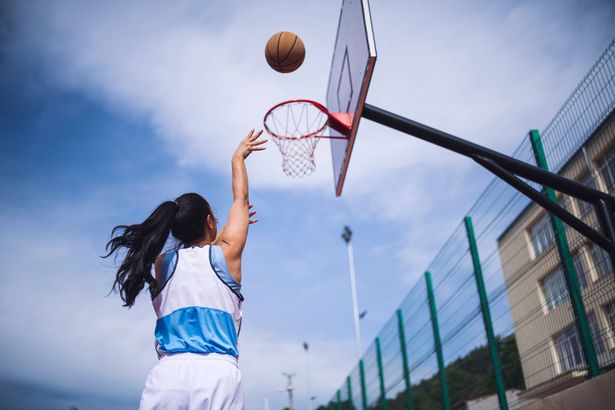Our Terms & Conditions | Our Privacy Policy
Almost half of women have been subjected to sexist abuse while playing sport
A survey of 3,000 female athletes found that 48 percent of women have been on the receiving end of sexist abuse – including being told ‘you’re not strong enough’ or ‘you throw like a girl’
Nearly half of all women have endured sexist taunts whilst taking part in sports, with slurs such as ‘throw like a girl’, comments about appearing ‘like a man’ or being ‘not strong enough’. A survey of 3,000 female athletes revealed other unwelcome comments included assertions that women weren’t as good at sports as men, or that women in sport were inferior or ‘soft’.
The main source of these unwanted comments came from strangers on the street, followed by male athletes and male coaches. Worryingly, 58 per cent of those who have faced sexist abuse admitted it made them consider quitting sport altogether.
Women often experience abuse about their appearance and skills(Image: Getty Images)
Dr Pallavi Bradshaw, deputy chief medical officer at AXA Health Insurance, which commissioned the study, said: “Comments about physical ability or derogatory statements about gender have no place in sport or exercise.
“It can be a lose-lose situation for women sometimes. Despite the progress which has been made to improve access to women’s sport, the research shows there’s still a long way to go to making sport an equal playing field for all.”
The research went on to discover other obstacles for women, with 39 per cent saying their involvement in sport was negatively affected by menstrual health.
Olympic gold medallist Sam Quek, who triumphed with Team GB in women’s hockey at the Rio Olympics, shared: “As a woman in sport, I’ve encountered and heard countless jibes; ‘Oh, she’s hormonal, oh, she’s on her period, she throws like a girl, she’s not strong enough – the list goes on.
“One area in women’s sport which I have loved to see evolve is the menstrual cycle and women’s periods, because whether you like it or not, it does affect sporting performance.
“We are not using it as an excuse, we just needed a greater understanding.”
 Most unwarranted comments came from strangers(Image: Getty Images)
Most unwarranted comments came from strangers(Image: Getty Images)
The study found that 78 per cent believe female athletes don’t get the recognition they merit, despite 94 per cent of parents recognising the significance of demonstrating a positive attitude towards exercise for their children.
To help shield women from these damaging experiences, eight in ten said coaches, officials, spectators and others within the sporting community must raise their standards to tackle sexist abuse.
Speaking up when witnessing abuse, championing equal opportunities and offering praise to women when merited are the leading recommendations to help enhance the culture for women in sport.
Dr Bradshaw stressed: “It’s important we ensure that women are treated fairly, so we need to normalise flexing training plans to suit women’s needs, such as using the stages of the menstrual cycle to benefit training.
“We know that certain stages of the cycle women can feel more fatigued, but there are stages where they might feel stronger, too – so they can use this to their advantage.
“Women menstruating are also more likely to suffer injuries, so this should be factored into training plans.”
Sam Quek added: “Sport for me is magical. It’s for everyone. To any female involved in sport who has been told they’re too much – you’re not, you’re you. And to any female who has been told we’re not enough, we are enough.”
Images are for reference only.Images and contents gathered automatic from google or 3rd party sources.All rights on the images and contents are with their legal original owners.



Comments are closed.